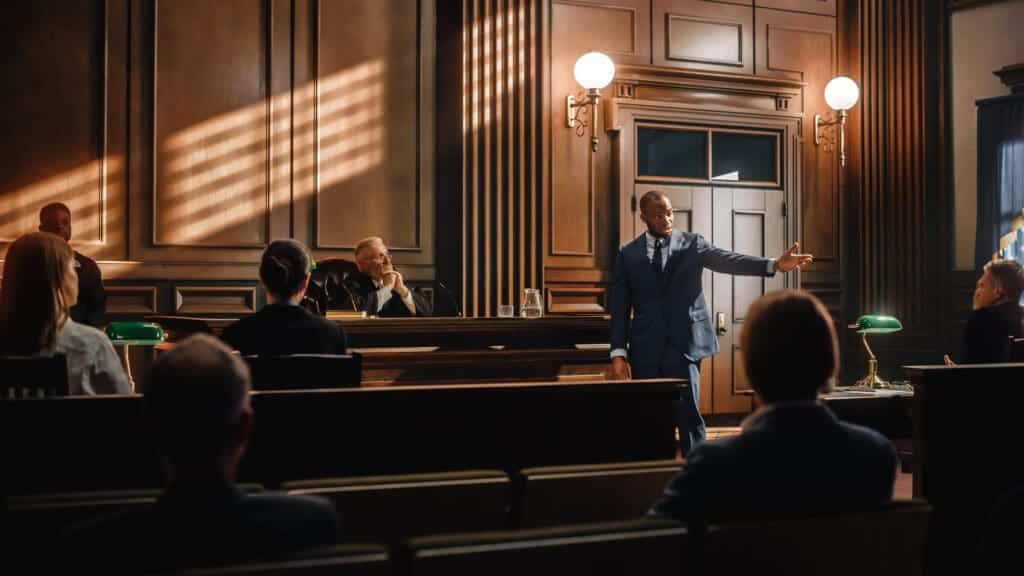If you’re considering filing a legal action in the federal district court system, there are a few things you should know. Federal courts typically only hear certain types of cases that involve the following issues:
- Interpretation of aspects of the US Constitution
- Federal criminal cases
- Military legal issues not handled in the military justice system
- Violations of securities laws
- Intellectual property law, including copyrights and patents
- Cases involving people who live in two or more different states and are in dispute over property valued at $75,000 or more
- Legal actions against federal agencies, including lawsuits and allegations of wrongdoing
- Matters pertaining to diplomatic and treaty law
- Disputes between states
- Legal issues involving navigable bodies of water, including rivers, the Great Lakes, and the ocean
In general, the federal district court system only hears cases that have federal implications or importance. Most other cases are handled at the state, county or municipal levels. If your case doesn’t fall into one of the above-listed categories, you may not be permitted to file a legal action on the federal level.
The Role of US District Courts
There are 94 district courts in the United States. Each of these courts has limited jurisdiction, which means they’re only authorized to hear cases that involve federal statutes, interpretations of the US Constitution, or cases that concern more than one state. Other cases are heard in state courts or lower courts within the states.
The US district courts system is the initial point of entry into the federal legal system for court cases that can’t be decided in state courts. Most civil cases are handled at the local or state levels, including nearly all cases involving family law matters like divorce, probate, wills, child custody, and guardianship proceedings. Unless real estate litigation involves the laws of two or more states, these lawsuits are also usually settled in state courts. Bankruptcy proceedings are only heard in US District Courts and cannot be decided at the state level.
How Federal District Courts Work
Each state has at least one US District Court that decides cases for companies and individuals within that state. Each district court has at least one US District Judge and includes a US bankruptcy court. The steps necessary to present a case in the US District Court are similar to that necessary for lower courts:
First, pleadings are entered on behalf of the plaintiff and the defendants in the case. These are papers filed that explain the reason for the legal action by the plaintiff and the response, if any, by the defendant.
Before the trial begins, the judge will usually hold pretrial conferences with the lawyers for both parties. This will allow the US District Court Judge to determine whether the case is appropriate for the venue and to manage the case more effectively if it’s deemed appropriate for review by the federal court system.
Discovery then provides both sides of the legal dispute with the opportunity to examine the evidence and documentation held by the other legal team. This is also when interviews and depositions take place in the federal legal process. Motions can be filed at any point along the way by the plaintiff or the defendant to request an action or a decision by the judge.
If a settlement of the case is possible and desirable, this may occur at any time before the case goes to trial or, in certain cases, during the trial itself. Settling the case prevents it from continuing through the legal system and allows it to be finalized without a decision by the judge or jury.
When the case comes to trial, the judge can empanel a jury or can conduct what is known as a bench trial. Jury trials at the US District Court level work in much the same way as state-level proceedings. The jury may consist of 6-12 people who decide the case based on the judge’s guidance and their own consciences. In a bench trial, the judge hears all arguments and issues a decision based on the evidence presented and on legal precedents.
Once a judgment has been rendered, the losing party may be able to appeal the case to a US Court of Appeals, also known as a federal circuit court. There are 12 federal circuit courts, each with its own area of jurisdiction. Cases referred to the Circuit Courts of Appeals are heard by a panel of three circuit court judges before whom oral arguments are made and evidence is presented. These judges decide whether the previous decision is upheld, overturned, or upheld only in part.
Will My Case Be Heard in Federal Court?
If you file for bankruptcy, your case will be presented in federal court. All bankruptcies are handled by the US District Courts and not by state or local courts. Otherwise, however, it’s fairly unlikely you’ll ever be involved in a civil case that requires a decision by one of the US District Courts.
If your civil case does merit attention by the federal court system, you’re legally entitled to represent yourself in these proceedings. If you do choose to proceed as a self-represented litigant, you’ll need to adhere to the Federal Rules of Civil Procedure to be successful in this legal environment. Performing some research on the proper legal forms and documentation will also play a key role in your degree of success in the federal district courts system. Federal courts tend to follow precedent strictly, so even more than in state court, you’ll need a Personal Practice of Law for federal court that enables you to interpret the law governing your legal issue, apply the law to your specific facts, and argue the law in court.




I would like to receive information on State jurisdiction of tribal lands & it’s people without No memorandum implemented. (i. e. State/County Parole & Probation/State Board of Parole & Probation
I am trying to sue someone for ten thousand dollars. Which court should I go to in order to file?
In the state of Maryland snap payments were supposed to resort back to the original payments absent the emergency allotment.
Maryland has committed fraud by
substituting the original snap payments as the emergency allotment, this reducing snap payments below the original payment. This has happened to me as well as others. Must I first file a complaint with DHS before filing a petition with the federal court, and what type of a petition must I file.
I requested a hearing with DHS. Dhs was ordered by Administrative judge to make payments. DHS refused . Dated.back as far as 2001. I am very frustrated with the situation. Nothing has been resolved.
I plan to sue my brother (Arizona res)and sister (California res) for senior abuse and stealing approx $833,000.00 from my inheritance. Their was a living trust which split the approx $2,500,000.00 in equal shares to
My siblings lied to me while I was homeless regarding the actual value of the trust and I was given a house in New Mexico as part of the trust which was sold for $200,000.00.
Now they won’t communicate with me and are freely spending on luxury items.
Also after my mothers death I was contacted by a California attorney who represented himself as the lawyer for “the trust” but I just found out that he was retained by my sister and brother and was working for them exclusively.
The trust was filed in New Mexico and it involves real estate in New Mexico , Arizona and California.
I could use a little help on procedural matters and would be very great full thanks
I worked for the Florida court for 4 years . I am disabled with a severe traumatic brain injury and was fired when I had a seizure, and also written up when my wife and I lost a baby because of a miscarriage. The judge protected himself (the court). Guess who the judge found in favor of? Yes, himself (the court). I have tried for an appeal to have an impartial jury, but was told no.
How can I get an impartial jury with a new trial?
Hi my name is. Dorothy crockett and I want to try to get help on my inhertiancethat was forge and stolen and I know who did it i need help trying to get it back.